10 Secret Spots in Rome
If you feel like going off the beaten track in Rome, take note of the Italian capital's best-hidden secret spots and get to know the city like a local!
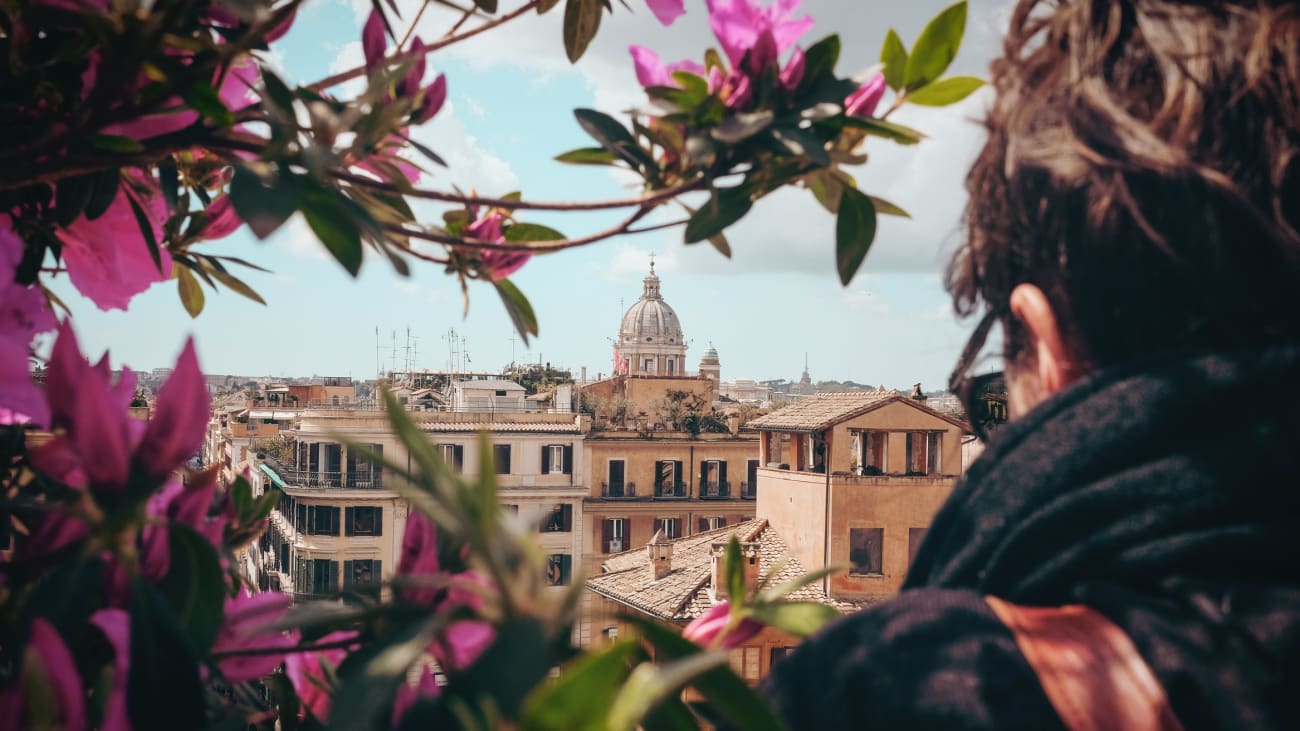
Discovering Rome's nooks and crannies | ©Cristina Gottardi
Beyond the guided tours of the Colosseum, the entrances to the Vatican, Rome's best squares, its impressive fountains and streets of rich opulence, lies a secret Rome, with hidden corners that the tourist's eye does not usually perceive.
That is why you are reading these lines: to get out of the herd and add to your list of things to see and do in Rome, the lost gems of the Eternal City. First of all, I propose a tour to take you into the most mysterious Rome.

Rome Private Tour
Let a local guide lead you through hidden Rome to discover the secrets of the Eternal City.
With this private tour with aperitif included, you won't miss any of the must-see monuments, thanks to a three-hour tour that will also take you to the lesser-known places in the city.
The churches of Piazza Navona, the fascinating oculus of the Pantheon or the narrow streets of Trastevere are some of the Roman corners that you will discover in a different way thanks to this private tour of hidden Rome. Accompanied at all times by a local guide who will tell you all the secrets and legends, you will visit unique places in a personalised way, which you might not be able to understand on your own. In addition, this tour includes a drink and a local snack.
Here are 10 hidden places in Rome that you will only get to if you know them. Take note of where to find them.
1. Quartiere Coppedè
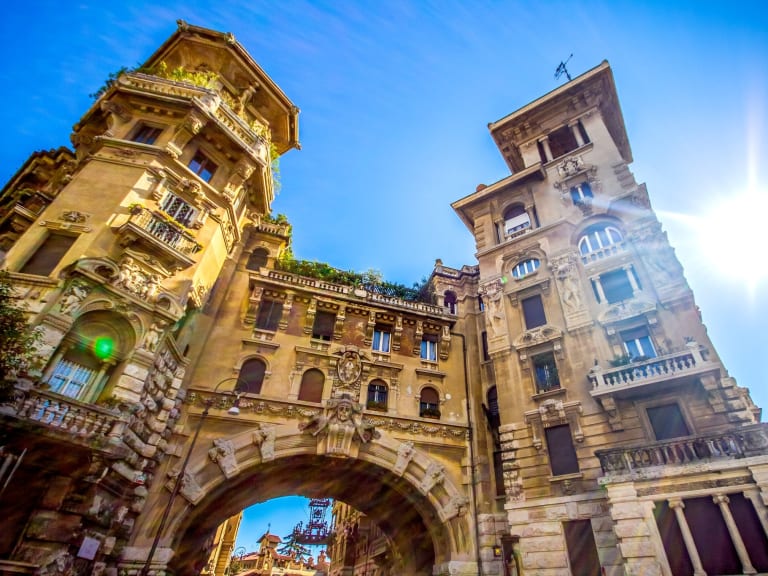
Rome's Quartiere Coppedè is like stepping into a fairy tale squeezed between four streets, on the corner of Via Dora and Via Tagliamento. There are a couple of very nice buildings and a square with a fountain that, although they will not taste like much, will make the visit totally worthwhile.
One advantage of this area is that, as it is not so well known, it is a refuge from the tourists that crowd the streets of Rome, where you can rest and take some very nice photos in the light of the sunset. It's one of the things I recommend you do on your visit to Rome and it's sure to be one of the stops if you book a private tour of hidden Rome.
2. Piccola Londra
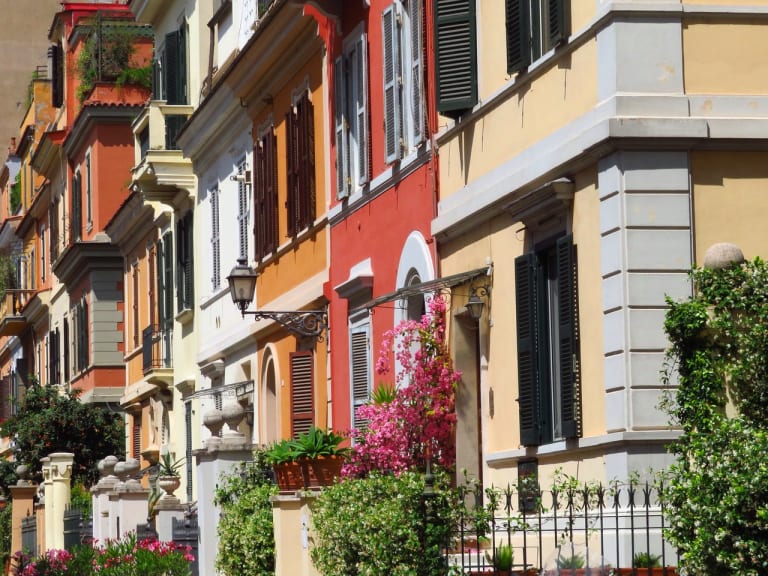
Go to Piccola Londra knowing you'll fall in love with its Notting Hill-style cottages, only with the Mediterranean magic of Rome. The name of this neighbourhood literally means Little London, and it was built in the early 20th century in an attempt to modernise Rome and adapt it to the style of other European cities. The contrast this neighbourhood offers with the rest of the city is a testament to this.
Piccola Londra is only a few streets, as the project by architect Quadrio Pirani was never extended, but you can wander around this unusual part of London on Via Bernardo Celentano, just off Via Flaminia.
- Take the opportunity to see it... in case during your visit to Rome you take a tour of the Galleria Borguese and the gardens, as you can walk there in little more than half an hour.
3. The lock of the Knights of Malta
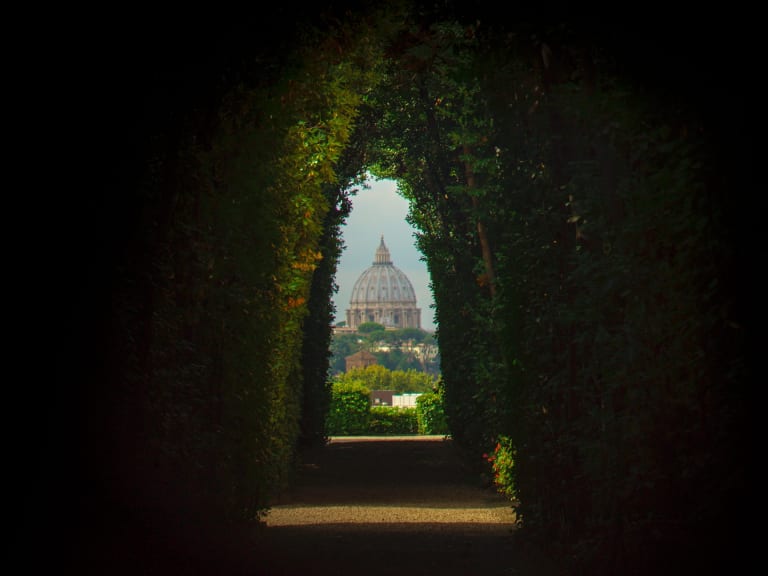
The Aventine Hill is one of the seven hills of Rome, the southernmost of the city. In the days of the Roman Republic, it was home to many of the city's plebeians, but today it is an area of elegant mansions and gardens.
Of all these gardens, one is probably the favourite of many of Rome's locals, the Giardino degli Aranci or Garden of Oranges, which was once an orchard of Dominican monks. This park, which is free to enter, contains a not-so-well-kept secret of Rome, a keyhole through which the dome of St. Peter's Basilica can be seen in the distance.
It's definitely an ideal way to photograph this iconic landmark after your visit to St. Peter's Basilica, so add this visit to your schedule, both for the views and the walk, it's a must-see. The best time to visit the Orange Tree Garden is one hour before sunset, although at this time you will find more tourists.
- Take the opportunity to see it... before or after visiting the Trastevere neighbourhood, as it is just a short walk across the river.
- Opening hours: from 7am until sunset, i.e. 6pm from October to February, 8pm from March to September and 9pm from April to August.
4. Basilica di Santo Stefano Rotondo al Celio

The Basilica di Santo Stefano Rotondo al Celio is a place I can't resist mentioning and will almost certainly be one of the stops if you book a guided tour of Rome's catacombs and basilicas. True, there is no rival to St Peter's Basilica, but this is not about finding a basilica to rival that of the Holy See: it is about finding the place that other eyes will not, mistakenly, consider worth a visit.
Because of its proximity to the Colosseum, the Basilica di Santo Stefano Rotondo al Celio is the one that perfectly fulfils what we are looking for. Its circular architecture, its sombre interior decorated with frescoes of martyrs and its sepulchral atmosphere create an atmosphere that you will find in few other places in Rome.
To get to the Basilica di Santo Stefano Rotondo al Celio, the best way is to walk, taking advantage of your guided tour of the Colosseum It will take you about 10-15 minutes to get to Via di Santo Stefano Rotondo 7.
- Take the opportunity to see it... when you visit the Colosseum because it is quite close.
- Opening hours: open to the public from 10am to 1pm and from 2pm to 5pm from October to March, and from April to September from 3pm to 6pm.
5. Palazzo Doria Pamphilij
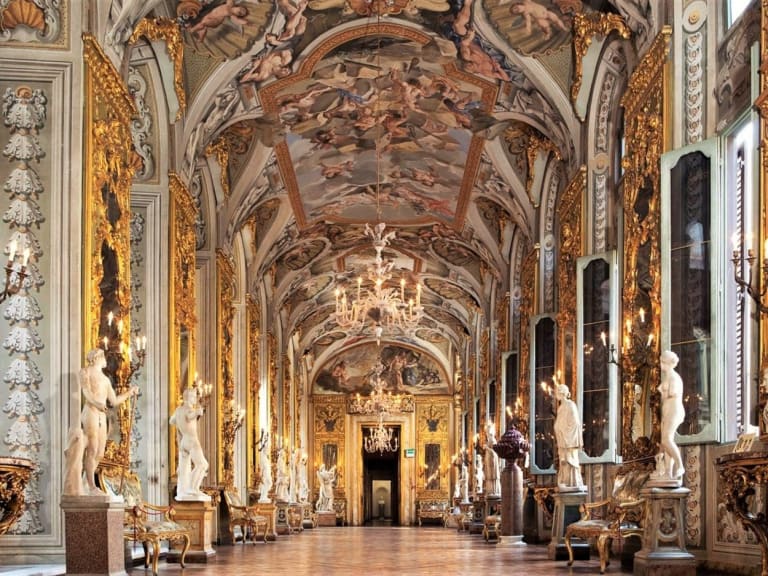
This palace is one of the most overlooked places in Rome, although it can be included if you book a private tour of hidden Rome. It's in the centre of the city, near the Trevi Fountain, the Pantheon and the monument to Victor Emmanuel II, and it's beautiful on the outside, but inside it's a baroque fantasy that houses a museum you can visit, the Galleria Doria Pamphilij.
The museum's collection belongs to the family that gives the palace its name, with works of art by Raphael, Titian and Velázquez among other painters, displayed in a gallery decorated with opulence and luxury.
A place to take a break from the hustle and bustle of the Roman streets, especially inside the museum where you'll find a colonnaded courtyard where the sun shines in a special way.
- Take the opportunity to see it... when you're in the centre of Rome, whether you're tossing a coin into the Trevi Fountain or visiting the Pantheon in the evening.
- Opening hours: 9.30am-7pm on Saturdays, Sundays, Mondays and public holidays, and 11.30am-11pm on Fridays.
- Price: €14 with audio guide.
6. Park of the Aqueducts
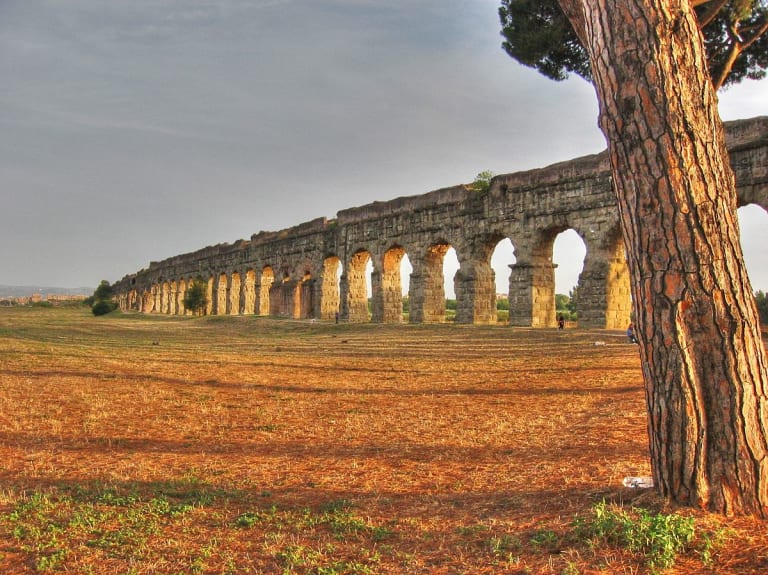
If you have seen Sorrentino's La Grande Bellezza, you will be familiar with this park from one of its scenes, and if not, you will discover for the first time a place with the air of a ruin of the ancient world, a park whose vegetation has grown among the remains of a lost civilisation.
The Park of the Aqueducts is undoubtedly one of the most interesting places in Rome, especially at sunset, when you can see framed one of the arches of the aqueducts of Aqua Felix or Aqua Claudia, which still stand in this park.
Visiting the park is completely free and you can easily reach it from the city centre on metro line A, going to the Lucio Sestio or Giulio Agricola stations, which are just a few minutes' walk from the Park of the Aqueducts. You can also book an electric bike tour of Rome's Appian Way, the aqueducts and the catacombs.
- Make the most of it... if you have a free day, because it's quite far from the centre of Rome.
7. Tiber Island
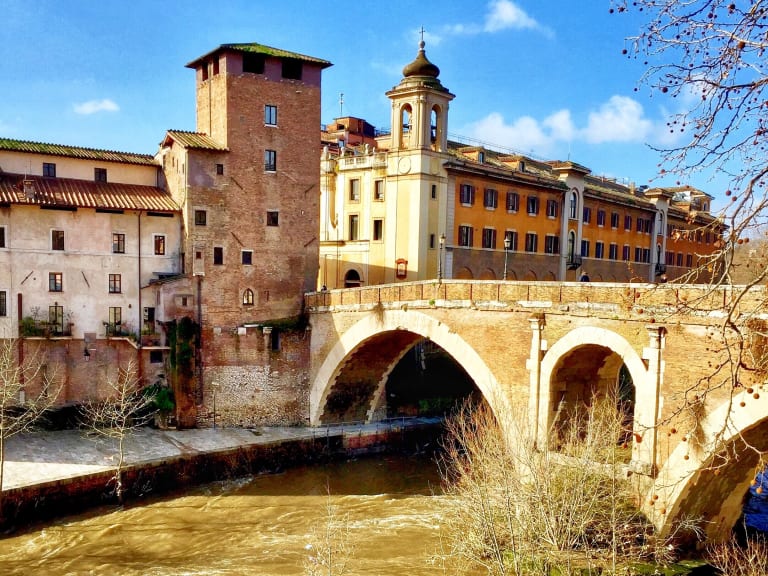
The river Tiber divides the historic centre of Rome and the district of Trastevere. Over the river hangs the Ponte Cestio which connects to the small Tiber Island, charming and picturesque, like a tiny medieval town with its old bridges and church. It once housed a temple dedicated to Aesculapius, the Greek god of medicine, which was built to celebrate that the plague had stopped ravaging Rome. This temple is today one of the most important hospitals in Rome.
Strolling around Tiber Island was one of my favourite pastimes during my last visit to Rome, and I went back one last time before catching my flight home, and it's one of the places you'll see if you book a tour of Trastevere or from which to take a tour of Rome's Jewish Quarter.
During the summer, the island hosts the Isola del Cinema film festival. There are also bars, restaurants and food stalls along the banks of the river, giving it a festive and certainly memorable atmosphere.
- Take the opportunity to see it... if you book a cruise on the Tiber with a stop, as you're likely to be taken there.
8. Michelangelo's Moses
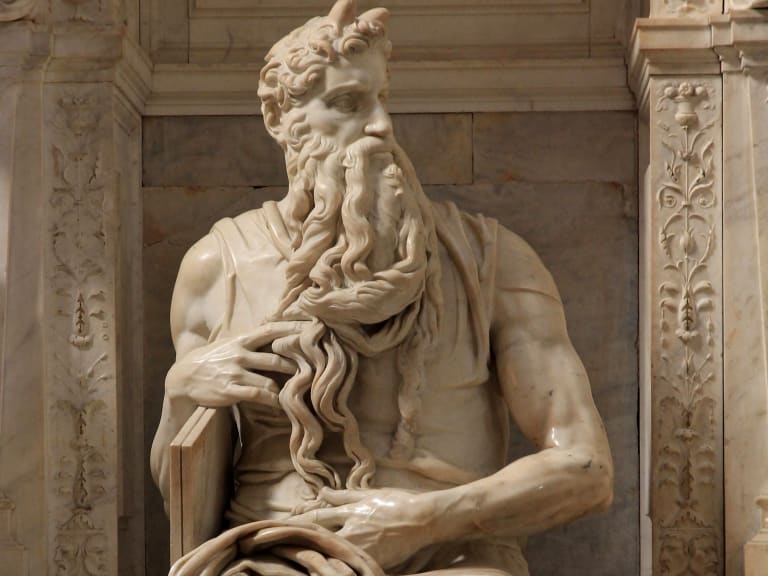
During your visit to Rome you will get to know in depth the art and genius of Michelangelo Buonarroti: the Pietà, the frescoes of the Sistine Chapel, but you will not fully appreciate his art without admiring with your own eyes the Moses.
Located in the Tomb of Pope Julius II in the Basilica of San Pietro in Vincoli (in the square of the same name), it is a sculptural ensemble full of disappointments: during the course of the creation of the work, the pope interrupted his donations to Michelangelo and what was to be a colossal work of 40 sculptures remained a scene in which the figure of Moses stands out.
A curious thing about his image is that he appears gored, following a tradition that historians say derives from a mistranslation of the Bible, which makes the light falling on Moses' face somewhat disconcerting.
- Take the opportunity to see it... after visiting the Colosseum because it is only a seven-minute walk away!
9. Piazzale Giuseppe Garibaldi, at the Gianicolo
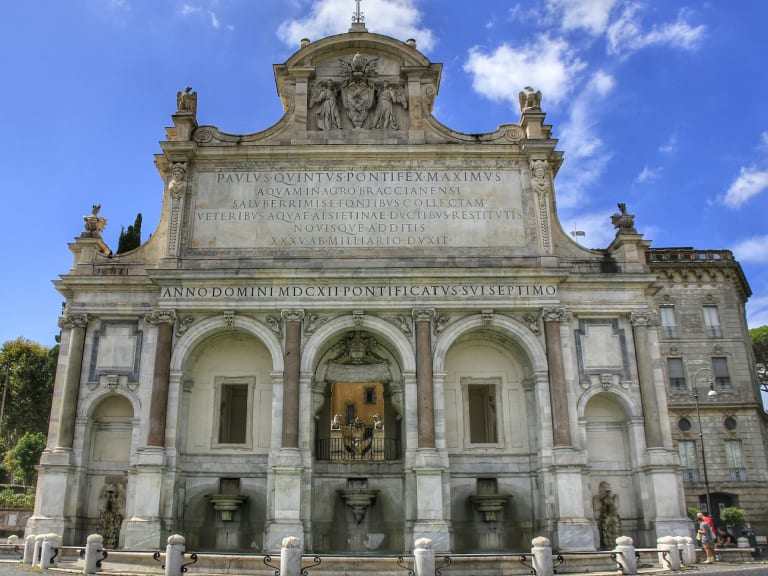
Another of the locations of Sorrentino's film, The Great Beauty, Piazzale Giuseppe Garibaldi has a monument to the military and political figure of the same name, and a wonderful 17th century fountain, the Fontana dell'Acqua Paola.
It is located at the top of the Gianicolo hill, also known as the eighth hill of Rome, and will offer you a beautiful view of the city especially at sunrise or sunset.
- Take the opportunity to see it... whenever you are in the mood for spectacular views of the city from the Gianicolo hill.
10. Borromini's perspective
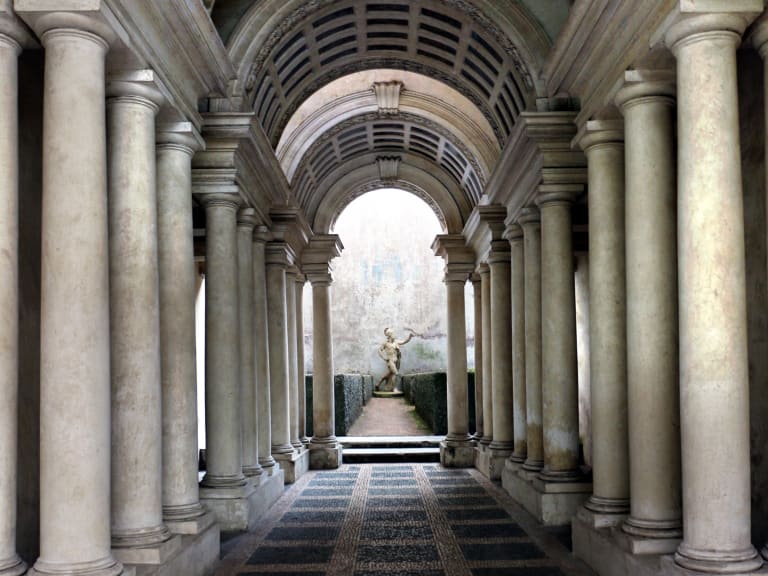
Finally, we come to our tenth hidden gem of Rome: the Borromini Perspective, one of the most fascinating sights in all of Rome. Located in a courtyard full of orange trees in the Palazzo Spada, it is an optical illusion commissioned by Cardinal Spada. An eight-metre-long gallery with a sculpture dedicated to Mars, the Roman god of war, which in reality appears much, much longer.
This effect, the work of the brilliant mind of architect Giovanni Borromini, was created using an ascending floor and a descending ceiling, with side columns that get smaller and smaller to simulate the effect of remoteness.
It is a small theatrical spectacle very typical of the Baroque aesthetic that is worth seeing when you book a private tour of hidden Rome or on your visit to Trastevere and the Jewish Ghetto.
- Take the opportunity to see it... before crossing the river to visit the famous Basilica of Santa Maria in Trastevere.
- Opening hours: Palazzo Spada is located at Piazza Capo di Ferro, 13 and can be visited from Tuesday to Sunday from 8.30am to 7.30pm.
- Price: The entrance fee is €5.
